

Philippe Sollers
Born: November 28, 1936
Died: May 5, 2023
in Talence, Gironde, France
Died: May 5, 2023
in Talence, Gironde, France
Philippe Sollers (born Philippe Joyaux; 28 November 1936 – 5 May 2023) was a French writer and critic. In 1960 he founded the avant garde literary journal Tel Quel (along with writer and art critic Marcelin Pleynet), which was published by Le Seuil and ran until 1982. Sollers then created the journal L'Infini, published first by Denoel, then by Gallimard with Sollers remaining as sole editor.
Sollers was at the heart of the period of intellectual fervour in the Paris of the 1960s and 1970s. He contributed to the publication of critics and thinkers such as Jacques Derrida, Jacques Lacan, Louis Althusser, and Roland Barthes. Some of them were later described in his novel Femmes (1983), alongside other figures of French intellectualism active before and after May 1968.
His writings and approach to language were examined and praised by French critic Roland Barthes in his book Writer Sollers.
Sollers was born as Philippe Joyaux on 28 November 1936, in Talence, France. His family ran the local Société Joyaux Frères, the iron factory Recalt producing material for kitchens, metal constructions and machines for the aircraft manufacturer SNCASO under the German military administration in occupied France during World War II. His parents were Octave Joyaux and Marcelle Molinié. He moved to Paris in 1955, studied at the Lycée privé Sainte-Geneviève of Versailles and at the ESSEC Business School.
Sollers married Julia Kristeva in 1967. He died on 5 May 2023, at the age of 86.
Following his first novel, A Strange Solitude (1958), hailed by François Mauriac and Louis Aragon, Sollers began, with The Park (1961) the experiments in narrative form that would lead to Event (Drame, 1965) and Nombres (1968). Jacques Derrida analyzed these novels in his book Dissemination. Sollers then attempted to counter the high seriousness of Nombres in Lois (1972), which featured greater stylistic interest through the use of wordplay and a less formal style. The direction taken by Lois was developed through the heightened rhythmic intensity of non-punctuated texts such as Paradis (1981).
Sollers's other novels include Women (1983), Portrait du joueur (1984), Le coeur absolu (1986), Watteau in Venice (1991), Studio (1997), Passion fixe (2000), and L'étoile des amants (2002), which introduced a degree of realism to his fiction, in that they make more explicit use of plot, character, and thematic development. They offer the reader a fictional study of the society in which he or she lives by reinterpreting, among other things, the roles of politics, media, sex, religion, and the arts.
Source: Article "Philippe Sollers" from Wikipedia in English, licensed under CC-BY-SA 3.0.
Sollers was at the heart of the period of intellectual fervour in the Paris of the 1960s and 1970s. He contributed to the publication of critics and thinkers such as Jacques Derrida, Jacques Lacan, Louis Althusser, and Roland Barthes. Some of them were later described in his novel Femmes (1983), alongside other figures of French intellectualism active before and after May 1968.
His writings and approach to language were examined and praised by French critic Roland Barthes in his book Writer Sollers.
Sollers was born as Philippe Joyaux on 28 November 1936, in Talence, France. His family ran the local Société Joyaux Frères, the iron factory Recalt producing material for kitchens, metal constructions and machines for the aircraft manufacturer SNCASO under the German military administration in occupied France during World War II. His parents were Octave Joyaux and Marcelle Molinié. He moved to Paris in 1955, studied at the Lycée privé Sainte-Geneviève of Versailles and at the ESSEC Business School.
Sollers married Julia Kristeva in 1967. He died on 5 May 2023, at the age of 86.
Following his first novel, A Strange Solitude (1958), hailed by François Mauriac and Louis Aragon, Sollers began, with The Park (1961) the experiments in narrative form that would lead to Event (Drame, 1965) and Nombres (1968). Jacques Derrida analyzed these novels in his book Dissemination. Sollers then attempted to counter the high seriousness of Nombres in Lois (1972), which featured greater stylistic interest through the use of wordplay and a less formal style. The direction taken by Lois was developed through the heightened rhythmic intensity of non-punctuated texts such as Paradis (1981).
Sollers's other novels include Women (1983), Portrait du joueur (1984), Le coeur absolu (1986), Watteau in Venice (1991), Studio (1997), Passion fixe (2000), and L'étoile des amants (2002), which introduced a degree of realism to his fiction, in that they make more explicit use of plot, character, and thematic development. They offer the reader a fictional study of the society in which he or she lives by reinterpreting, among other things, the roles of politics, media, sex, religion, and the arts.
Source: Article "Philippe Sollers" from Wikipedia in English, licensed under CC-BY-SA 3.0.
Movies for Philippe Sollers...
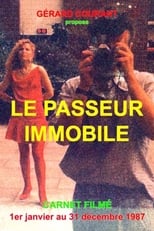
Title: Le Passeur immobile
Character: Self
Released: December 14, 2021
Type: Movie
Le Passeur immobile, which covers the year 1987, is a Booklet filmed stuck between The Days and the Nights (1986) and The Artifice and the Fake (1988). These Notebooks have been punctuating my activity as a filmmaker for about fifteen years. They are like a life parallel to my other films and film series (Cinema, Group Portrait, Read, etc.). They are also like a letter to the spectators.

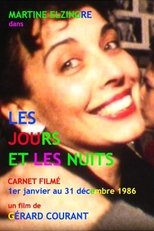
Title: Les Jours et les Nuits
Character: Self
Released: November 19, 2021
Type: Movie
I give a methodical account of my film work: the creation of new series (Lire, Trio, Avec Mariola), the shooting of a new feature film (Amours décolorées which will take ten years to edit) with Mariola San Martin.


Title: Jacques Derrida, le courage de la pensée
Character: Self
Released: October 8, 2014
Type: Movie
A look back at the life of Jacques Derrida, on the 10th anniversary of the philosopher's death.

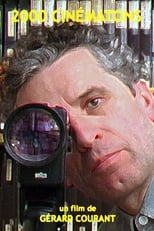
Title: 2000 Cinématons
Character: Self
Released: September 18, 2001
Type: Movie
A film about an ongoing cinematic adventure that began in 1978: a vast anthology of personality portraits called Cinématons, dealing with people in the arts. Historical, ethnological, sociological and psychological, this anthology is a living record of the artistic community of the last 20th century which attempts to answer these questions: Why film everyone? Why choose cultural personalities? How do the subjects look at their image? How much exhibitionism and narcissism is involved in being filmed?



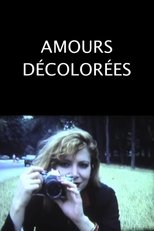
Title: Amours décolorées
Released: February 2, 1998
Type: Movie
Amours décolorées is a cinematographic poem to the glory of Mariola San Martin, model, stylist, dancer and Spanish photographer.

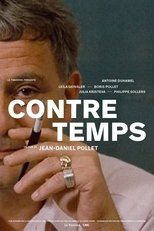
Title: Contretemps
Released: April 18, 1990
Type: Movie
As a rereading of his films, "Contretemps" (in the fight against time), Jean-Daniel Pollet brings together excerpts of his films and a report by Jean Baronnet. The author Philippe Sollers and philosopher Julia Kristeva voice their thoughts.



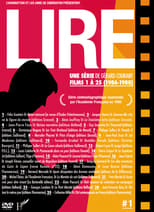
Title: Lire
Character: Self
Released: December 7, 1986
Type: Movie
Lire is a cinematographic series of filmed portraits that shows, in a single large fixed and sound sequence shot of 3 minutes 20 seconds, a writer reading the beginning of his last published book.

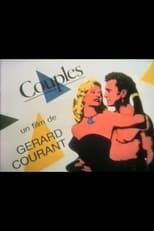
Title: Couple
Character: Self
Released: January 18, 1986
Type: Movie
Couple is a cinematic series of portrait films, which show two persons, who free to do what they wish, in a fixed camera shot of 3:20 minutes.

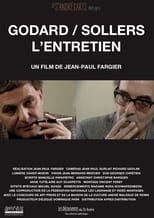
Title: Godard / Sollers : L’entretien
Released: April 17, 1985
Type: Movie
Jean-Luc Godard and Philippe Sollers meet in Paris to discuss Godard's film Je vous salue, Marie, and many other things.


Title: Cinématon XXXII
Character: N°314
Released: April 12, 1984
Type: Movie
Reel 32 of Gérard Courant’s on-going Cinematon series.


Title: Cinématon
Character: N°314
Released: December 20, 1978
Type: Movie
Cinématon is a 156-hour long experimental film by French director Gérard Courant. It was the longest film ever released until 2011. Composed over 36 years from 1978 until 2006, it consists of a series of over 2,821 silent vignettes (cinématons), each 3 minutes and 25 seconds long, of various celebrities, artists, journalists and friends of the director, each doing whatever they want for the allotted time. Subjects of the film include directors Barbet Schroeder, Nagisa Oshima, Volker Schlöndorff, Ken Loach, Benjamin Cuq, Youssef Chahine, Wim Wenders, Joseph Losey, Jean-Luc Godard, Samuel Fuller and Terry Gilliam, chess grandmaster Joël Lautier, and actors Roberto Benigni, Stéphane Audran, Julie Delpy and Lesley Chatterley. Gilliam is featured eating a 100-franc note, while Fuller smokes a cigar. Courant's favourite subject was a 7-month-old baby. The film was screened in its then-entirety in Avignon in November 2009 and was screened in Redondo Beach, CA on April 9, 2010.

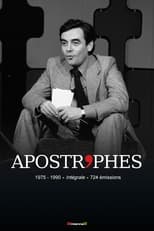
Title: Apostrophes
Character: Self
Released: January 10, 1975
Type: TV
Apostrophes was a live, weekly, literary, prime-time, talk show on French television created and hosted by Bernard Pivot. It ran for fifteen years (724 episodes) from January 10, 1975, to June 22, 1990, and was one of the most watched shows on French television (around 6 million regular viewers). It was broadcast on Friday nights on the channel France 2 (which was called "Antenne 2" from 1975 to 1992). The hourlong show was devoted to books, authors and literature. The format varied between one-on-one interviews with a single author and open discussions between four or five authors.

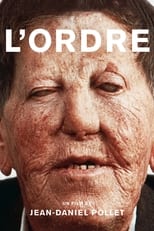
Title: The Order
Character: Narrator (voice)
Released: January 1, 1973
Type: Movie
Pollet provides an insight into life on the leper colony of Spinalonga, an island off Crete, through the eyes of Raimondakis, who tells the story of his life to the camera after having been excluded from his community to spend years of his life on the island with his fellow sufferers. Themes addressed include love, community, companionship and death and the importance of these values to all people whatever their state of health.

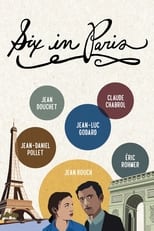
Title: Six in Paris
Character: A Client (segment "Place de l'Etoile") (uncredited)
Released: May 19, 1965
Type: Movie
Six vignettes set in different sections of Paris, by six directors. St. Germain des Pres (Douchet), Gare du Nord (Rouch), Rue St. Denis (Pollet), and Montparnasse et Levallois (Godard) are stories of love, flirtation and prostitution; Place d'Etoile (Rohmer) concerns a haberdasher and his umbrella; and La Muette (Chabrol), a bourgeois family and earplugs.

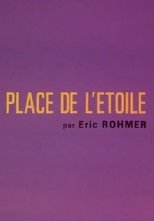
Title: Place de l'Étoile
Character: A client (uncredited)
Released: May 19, 1965
Type: Movie
Éric Rohmer's short for the portmanteau film Paris vu par (Six in Paris, 1965), concerning a haberdasher and his umbrella. Convinced he has killed a man, Jean-Marc flees and spends an anxious few days waiting for the death of the stranger to be reported in the newspapers...


